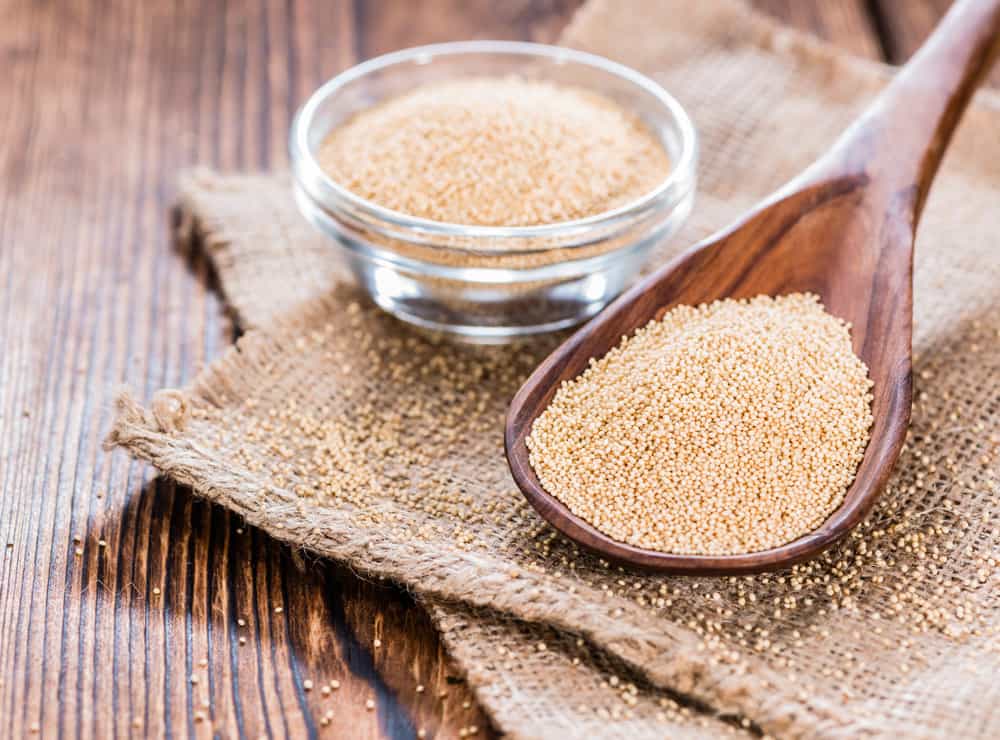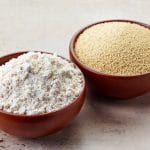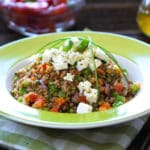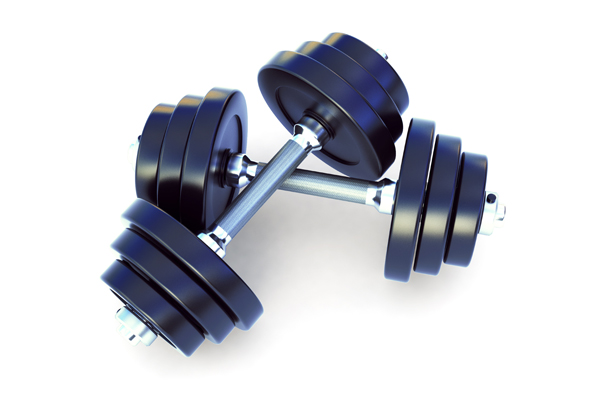Amaranth Facts:

PQ (Protein Quality) x PDCAAS (Protein Digestibility Corrected Amino Acid Score) - N/A
Additional Contents
- lysine
- lunasin
- saponins
- betacyanins
- phytosterols
- betaxanthins
- phenolic compounds
- complex carbohydrates
Potential Health Benefits
- powerful bone & joint health boost
- cardiovascular system health boost
- muscle relaxation & overall mood boost
- enhanced immune system function
- cholesterol lowering properties
- digestive system health boost
- anti-inflammatory properties
- anti-cancer properties
- energy boost
Potential Athletic Benefits
- Superior source of complex carbohydrates for sustained long-term energy demands.
- Increase bone and joint health and integrity for high volume training regimens.
Glycemic Index Rank
61 out of 100
| Rank | Value |
|---|---|
| Intermediate Glycemic | Between 55 and 70 |
Food Sensitivity Rank
<1 to 1 ratio
| Rank | Value |
|---|---|
| Low for Fructose Sensitivity | less than 1 (fructose to glucose ratio) |
Amaranth is one of the oldest grains grown throughout history for its high content of complex carbohydrates, protein, and dietary fiber, however, ancient Aztecs would not have known this. Amaranth is still cultivated today for many uses in flour products and also for normal consumption. It can benefit our digestive tract, lower cholesterol, and make for an excellent source of complex carbohydrates which is essential for energy production. However, amaranth must be consumed in moderation for certain medical conditions like gout, kidney disorders, and arthritis due to its intermediate levels of oxalate.
- Lunasin--a Novel Chemopreventive Peptide
- Antioxidant Capacity of Byproducts from Amaranth Seeds
- Antioxidant Capacity of Betacyanins as Radical Scavengers for Peroxyl Radical and Nitric Oxide
- Amaranth Peptides from Simulated Gastrointestinal Digestion: Antioxidant Activity Against Reactive Species
- Selenium Supplementation of Amaranth Sprouts Influences Betacyanin Content and Improves Anti-Inflammatory Properties via NFκB in Murine RAW 264.7 Macrophages

betacyanins
Sources include: USDA
***All-Body Fitness takes no responsibility for the accuracy of the information provided above. Please contact a medical doctor or a registered dietitian for nutrition advice.




 Fitness
Fitness Nutrition
Nutrition